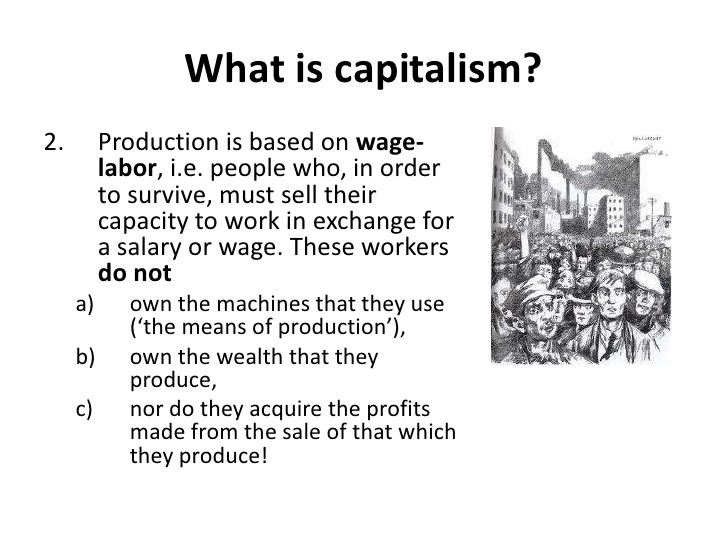Imagine a world where everyone is equal, where resources are shared fairly, and where the exploitation we see today is a thing of the past. This utopia, envisioned by a German philosopher and economist named Karl Marx, has sparked debate and inspired movements for over a century. Though he lived in the 19th century, Marx’s ideas about class struggle, capitalism, and alienation continue to resonate in our modern world. His influence on sociology, economics, and even political philosophy is undeniable, making him a figure worthy of close examination.

Image: brewminate.com
The seeds of Marx’s thought were sown in the turbulent backdrop of the Industrial Revolution. Witnessing the stark inequality and the exploitation of workers in factories fueled his desire to understand and change the social order. His theories, detailed in works like “The Communist Manifesto” and “Das Kapital,” offered a critical analysis of capitalism and a blueprint for a classless society. While controversial, Marx’s ideas sparked revolutions, influenced social movements, and continue to provide a lens through which we can analyze the power dynamics in our society.
The Core of Marx’s Sociological Theory
Marx’s sociological theory centers around the concept of **historical materialism**, which posits that the material conditions of society, specifically the modes of production, drive social and historical change. It’s about understanding how people interact with their environment to produce what they need, and how these interactions shape the social relations and ideologies of the time.
He argued that every society is built upon a base, which encompasses the means of production (tools, technology, land) and the relations of production (the social relationships between people involved in production). The superstructure, encompassing the political, legal, and cultural institutions, reflects and reinforces the base.
Capitalism’s Contradictions
Marx’s analysis of capitalism, a system built on private ownership and the pursuit of profit, identifies inherent contradictions. The core contradiction lies in the **exploitative relationship between the bourgeoisie (the owners of the means of production) and the proletariat (the working class).** The bourgeoisie extracts surplus value from the proletariat’s labor, leading to the accumulation of wealth for the few and poverty for the many.
This unequal relationship is maintained through **ideology**, which refers to the dominant ideas and beliefs that justify the social order. According to Marx, ideology is not simply a neutral reflection of reality but a tool used to legitimize and perpetuate power structures. It promotes false consciousness, masking the underlying contradictions and exploitation of capitalism.
The Seeds of Revolution
Marx believed that these contradictions would eventually lead to a **revolution**. The proletariat, becoming increasingly aware of its exploitation, would overthrow the bourgeoisie and establish a society based on communal ownership of the means of production. This socialist revolution, according to Marx, would usher in a classless society, where everyone would contribute according to their abilities and receive according to their needs.
While Marx’s vision might seem utopian, his theory highlights the importance of understanding power dynamics and the role of social structures in shaping our lives. His analysis of capitalism, though contested, has been influential in understanding the historical development of society.

Image: www.sociologygroup.com
Marx’s Enduring Legacy: A Legacy of Change
Marx’s ideas have continued to inspire and influence social movements and political ideologies. From the labor movements of the 19th century to the anti-globalization protests of the 21st century, Marx’s analysis of capitalist exploitation has served as a rallying cry for social justice.
His critiques of capitalism, along with concepts like alienation and exploitation, have found new resonance in the digital age. Labor rights, technological inequality, and the increasing concentration of wealth in the hands of a few are issues that resonate with Marx’s core arguments. As technology continues to revolutionize the workforce and reshape our economies, the debates around social structures and inequalities he initiated remain relevant.
Tips for Applying Marx’s Theories
Even if you don’t agree with all of Marx’s conclusions, his theories provide a valuable framework for understanding the social world. Here are some tips:
- Be critical: Don’t take any social system or ideology at face value. Ask questions about power structures, who benefits from the current system, and how individuals are impacted.
- Analyze power dynamics: Look for power imbalances and their effects on individuals and communities. Consider how different groups are disadvantaged or excluded.
- Embrace a historical perspective: Recognize the influence of historical events and social structures on the present. By understanding the past, we can better see the roots of current problems.
Using these principles, we can develop a more nuanced understanding of societal problems and engage in more informed conversations about social change and justice.
FAQ: Understanding Karl Marx and His Sociology
What does “alienation” mean in Marx’s theory?
Alienation refers to the feeling of estrangement or separation from one’s work, the products of one’s labor, and other human beings. In capitalism, workers are alienated from their labor because they don’t own the means of production, and from the products they create because they don’t have control over them. It’s a core concept in understanding the dehumanizing aspects of capitalist exploitation.
Did Marx advocate for violent revolution?
While Marx believed that revolution was inevitable in capitalist societies, he didn’t explicitly advocate for violence. His writings offer a complex analysis of social change, and his views on revolution should be interpreted within that context. It is important to note that different interpretations of Marx’s theories, particularly those advocating for forceful overthrow of the state, have indeed inspired revolutionary movements around the world.
Is Marx’s theory still relevant today?
Absolutely. Despite the significant changes in the global political and economic landscape since Marx’s time, his critiques of capitalism and the inherent tensions within it remain relevant. The issues of wealth inequality, worker exploitation, and the concentrated power of corporations are concerns that resonate with Marx’s analyses.
Sociological Theory Karl Marx
Conclusion
Karl Marx’s sociological theory provides a powerful lens for analyzing social structures, power dynamics, and the historical forces shaping our world. Understanding his concepts of historical materialism, class struggle, and alienation can illuminate the complexities of contemporary social issues. By critically engaging with his ideas and applying them to our own lives, we can gain a deeper understanding of the world and engage in active dialogues about social change and justice.
Are you interested in exploring Marx’s work further? Share your thoughts in the comments below!



/GettyImages-173599369-58ad68f83df78c345b829dfc.jpg?w=740&resize=740,414&ssl=1)


